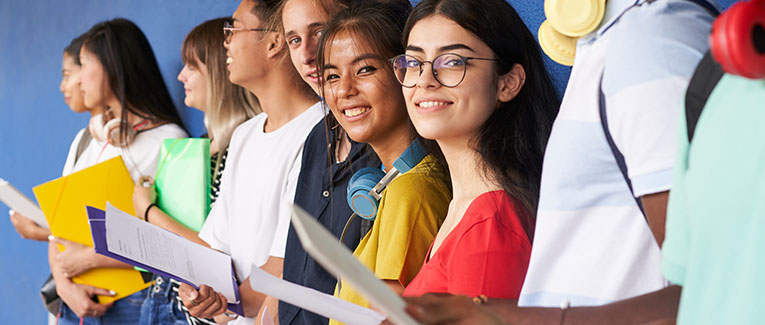
In the high school program under J-1 visa, secondary school students travel to the U.S. to study at an accredited public or private high school and live with an American host family or at an accredited boarding school.
Eligibility
Participants may be eligible to participate in secondary school student program if they:
- Are between the ages of 15 and 18.5 years old by the first day of school.
- Have not finished more than 11 years of primary and secondary school, not including kindergarten
- Have not previously participated in a secondary school student academic year or semester exchange program or attended school in the U.S. in either F-1 or J-1 status.
Details
- Students may take part in school activities, including after school sports programs. The school district and the state office in charge of deciding athletic eligibility must approve the exchange student’s participation.
- Students may not work part-time or full-time jobs. However, they may accept occasional work, like yard work or babysitting.
- Exchange students are not allowed to live with relatives.
- Participants are full-time students and must attend at least one academic semester (or its quarter equivalent) but no more than one academic year. If the school year in the foreign country is opposite that of the U.S. school year, students may participate in this program on a calendar year basis.
Sponsor Responsibilities
- Sponsoring organizations are required to screen all potential host families with whom participating students are placed. When screening potential host families, sponsor will:
- Provide potential host families with a detailed summary of the exchange visitor program and the duties and obligations of a host family’s participation
- Request a detailed summary and profile of the host family, the physical home environment, the family’s composition, and the community environment
- Conduct in-person interviews with all family members residing in the home
- Request two personal references for the host family from the school or community to attest to the host family’s good reputation and character
- Ensure that the host family has adequate financial resources to host the student
- Verify that each member of the host family who is 18 and older has undergone a criminal background check.
- Sponsors must ensure the following for participants:
- Under no circumstances will a sponsor facilitate the entry of any student for whom a host family placement has not been secured or without a school placement. They must obtain written notice of a participant’s acceptance by the school from the principal or other authorized school administrator.
- Sponsors may not enroll more than five students in one school unless so requested in writing by the school.
- Local coordinators are assigned to participants to monitor their program and assist with any issues during their stay in the U.S.
- No more than two foreign secondary school students may be placed in a host family home and can only be placed if all regulatory requirements are met: students are not from the same countries or have the same native language; written approval from the students; written approval from the student’s natural parents; written acceptance of two students by the host family; etc.
- Prior to students leaving their home country, provide them with all travel arrangements and a profile of the school, host family, and community in which they have been placed.
- Students and their parents should be made aware whether their host family is considered an arrival (temporary) family or a permanent family for the school year.
Host Responsibilities
Host families are required to:
- Provide a bed, adequate storage space for clothes and personal belongings, reasonable access to bathroom facilities, and study space if not otherwise available in the home;
- Three quality meals a day; and
- Transportation to and from school activities

